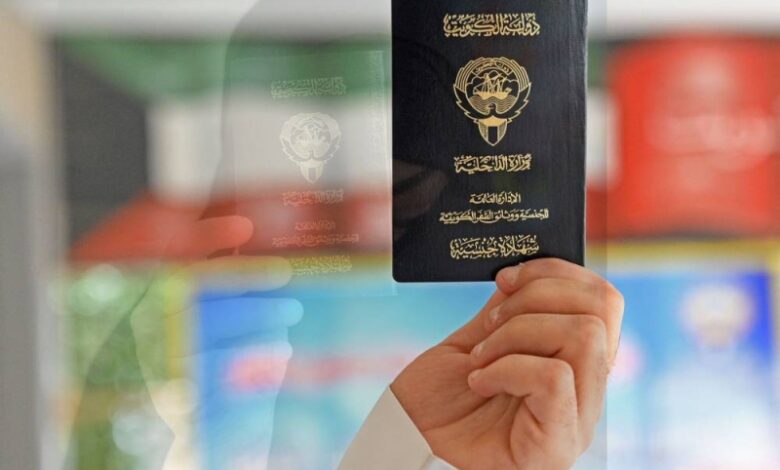Kuwaiti wives’ citizenship files face intensive review
Statistics show that wives from 66 nationalities have obtained Kuwaiti citizenship, some through legitimate means and others in questionable ways that require thorough re-examination.

• A foreign wife of a Kuwaiti citizen must express a desire for naturalization and wait up to five years, but investigations have revealed violations where the waiting period was cut to less than five days after marriage.
• There are cases in which exceptions were granted for the citizenship of citizens’ wives concerning the required time period. However, after citizenship, these women divorced and subsequently married another person of their original nationality.
The issues are significant, and the divide is profound. It is evident that the citizenship file has not undergone adequate reform and auditing processes in recent years. This assessment comes from a special source who spoke to Al-Rai newspaper, emphasizing the importance of preserving national identity in the interest of Kuwait and its citizens, and in adherence to established directives.
Government sources confirmed to the newspaper that the citizenship file is receiving attention from the highest levels of government, with all cases being reviewed carefully and examined individually to ensure there are no violations or transgressions.
The sources noted that the files of Kuwaiti wives who obtained citizenship are particularly sensitive and are being scrutinized closely.
Statistics indicate that wives from 66 nationalities across various continents and countries have acquired Kuwaiti citizenship, some through proper means and others in ways and timeframes that raise suspicions and warrant a thorough re-examination.
The sources explained that, as previously understood, a Kuwaiti citizen’s foreign wife must first express a desire for citizenship, and a period of up to five years should elapse following this declaration.
However, detailed investigations currently underway have uncovered blatant violations; in some cases, the waiting period was reduced to less than five days after marriage, rather than from the declaration of intent. In other instances, the desire for citizenship was never formally declared, resembling a case of “from the notary to nationality.”
The sources explained that there are cases in which exceptions were granted for the naturalization of citizens’ wives concerning the required time period. However, after citizenship, these women divorced and subsequently married another person of their original nationality.
They also pointed out other instances involving Kuwaiti wives who had originally left Kuwait and were not residing there, opting instead to receive social assistance and transfer their funds abroad.
Additionally, the sources revealed cases where women were granted citizenship in record time, then divorced, and later requested that their children from a previous marriage to a Kuwaiti be recognized as Kuwaiti citizens. They sought naturalization for their children, considering them the offspring of a Kuwaiti woman.
She stated that, on the other hand, there are older citizenship cases, some of which involve marriages that resulted in children. These cases are considered different and are studied accordingly.
The sources confirmed that the Supreme Committee for Citizenship Investigation is diligently reviewing the citizenship file comprehensively and accurately. They emphasized that all cases that do not meet the conditions or where blatant violations in obtaining citizenship may be discovered are under investigation and review, and necessary actions will be taken regarding these violations.











